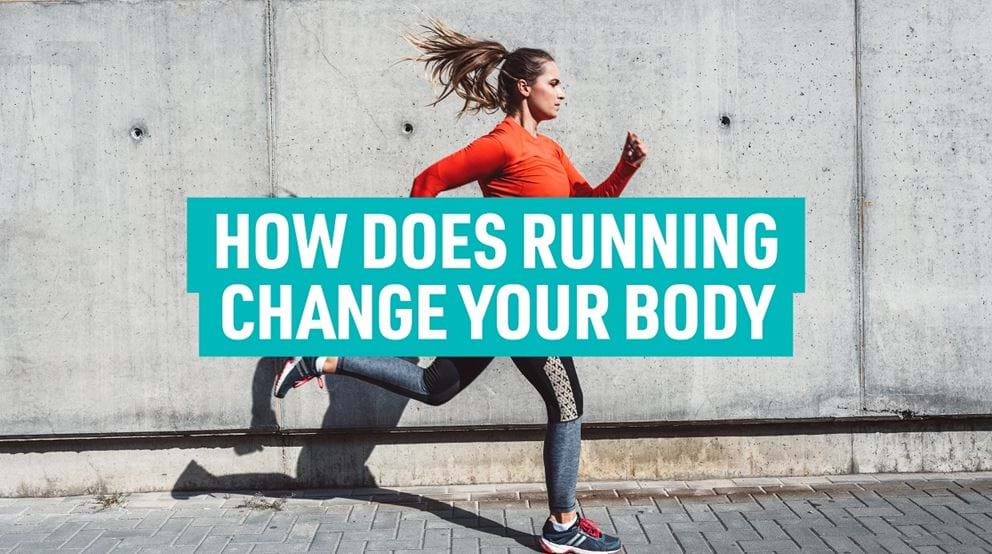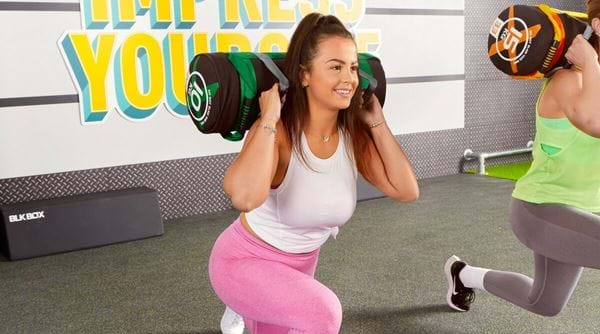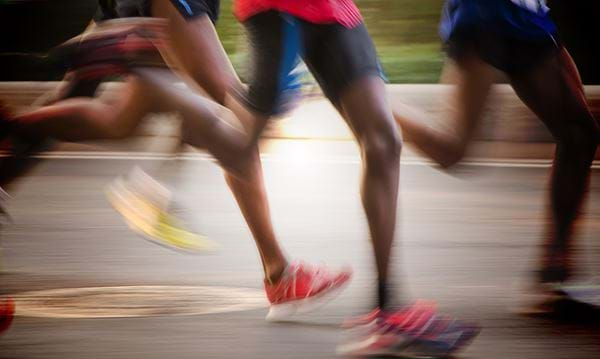How Running Shapes Your Body, Boosts Fitness, And Uplifts The Mind

When following a healthier lifestyle, many turn to running as a timeless and effective means of exercise. It’s simple to start and free to practise, just lace up your running shoes and go. Beyond the rhythmic pounding of feet on a treadmill or pavement, running brings about a range of changes within the body: from physical transformations in body shape and enhanced fitness, to profound shifts in mental wellbeing.
Below, Ian Scarrott, Personal Trainer at PureGym Loughborough and Your Run Coach founder, delves into how running changes your body shape, overall fitness and mental health.
How Can Running Physically Change Your Body?
While running might not miraculously turn you into a marathon marvel overnight, consistently engaging your muscles, particularly in the legs, will gradually contribute to a leaner and more toned appearance. But that’s not all - here are some of the main physical changes you may notice after starting a regular running routine:
-
Legs of steel
Running is a leg-centric activity, working various muscle groups with each stride. The quadriceps, hamstrings, calves, and hip flexors all work together to propel you forward, becoming stronger and more defined over time. The result? Legs that not only carry you across finish lines, but also boast a sculpted aesthetic[1].
Our strength training for runners guide shows other exercises you can do to improve your key running muscles.
-
Core strength
Thought the only way to work your core was with ab focused exercises? While the legs do the lion's share of the work, the core muscles play a crucial role in maintaining stability and balance while running, so you’ll find you have a much stronger core after a few weeks of regular running.
Check out our core workouts and exercises hub for ideas on how to boost those abs even further.
-
Weight management
Running is a high-calorie expenditure activity, making it a helpful tool for weight management and weight loss when combined with a balanced way of eating . However, the benefits extend beyond the run itself; regular running can raise your resting metabolic rate, turning your body into a calorie-burning furnace even at rest. It’s also highly effective at burning fat, as the body taps into its fat stores for energy. All of this can help with changing your body composition if you’re keen to lose fat or manage your body mass[2].
Learn more about running for weight loss here.
-
Improved skin health
Believe it or not, running can also have positive effects on your skin health, adding to a radiant complexion and healthy glow. As you sweat, you flush out toxins from the skin, plus the increase in blood flow delivers essential nutrients and oxygen to the skin cells[3]. Plus, exercise has been proven to significantly speed up the healing process of skin wounds, helping to keep you healthy and well[4]. In summary, you can expect consistent running sessions to lead to glowing improvements in your skin’s overall appearance and texture.
How Can Running Improve Your Fitness?
Beyond the outward changes, running profoundly impacts your overall fitness level. It's not just about shedding a few pounds; it's about building a robust, resilient body that can tackle the demands of life with greater ease.
-
Improved cardiovascular fitness
At the heart of the matter – quite literally – is the cardiovascular system. Running is a cardiovascular powerhouse, pushing your heart to pump more efficiently and improving circulation. The result is a heart that's not just strong but resilient, better equipped to handle the ebb and flow of life[5]. That means reduced risk of cardiovascular diseases like heart attacks, and improved ability to move around day to day without fatiguing.
-
Increased aerobic capacity
Running involves deep and rhythmic breathing, which helps increase lung capacity. The lungs adapt to the demand for a higher volume of oxygen intake by expanding and contracting more efficiently[6]. Over time, this can increase your ‘vital capacity’ - the maximal amount of air a person can expel after a maximum inhalation[7]. As a result, you will be less likely to feel breathless during physical movement and lower your risk of respiratory health conditions. Running helps to fight the respiratory decline that comes naturally as we age.
-
Better bone and joint health
Contrary to the myth that running is hard on the joints, it’s incredibly beneficial for bone health. The weight-bearing nature of running stimulates bone density, reducing the risk of osteoporosis. However, striking a balance is crucial – excessive running without proper recovery can lead to joint stress[8].
Increasing speed and mileage gradually, strength training, warming up before your runs and stretching after your runs will help minimise the risk of injury to your muscles, ligaments and bones as a runner.
-
More explosive power
Sprinting or interval running is known for enhancing explosive power, primarily by targeting fast twitch muscle fibres. Fast twitch muscle fibres are responsible for generating short bursts of strength and speed[9]. This isn’t just helpful for running – it can assist you in weightlifting and athletic sports.
-
Improved endurance
While we’ve previously advised on some of the best ways to increase stamina and endurance for running, long-distance running can in turn increase your stamina and endurance. Many of the benefits listed above, like being able to use oxygen more efficiently, being able to propel yourself more powerfully, and having stronger bones and a more resilient heart mean you can enjoy running faster for longer. This will help you take more enjoyment from exercise and keep the healthy lifestyle cycle going!
How Can Running Support Your Mental Wellbeing?
The impact of running extends far beyond physical results, also affecting the complex landscape of mental health. Don those running shoes, and you're not just boosting your fitness prowess; you're embarking on a journey that can uplift your mood, sharpen your mind, and build resilience.
-
Endorphin elevation
Ever heard of a runner's high? It's not just a catchy phrase; it's a biochemical reality. Running triggers the release of endorphins, the ‘happy hormone’ neurotransmitters that act as natural mood elevators. Whether it's a brisk morning jog or a stress-busting evening run, the endorphin rush is your body's way of saying it feels great[10]!
-
Cognitive boost
As the miles accumulate, so do the cognitive benefits of running. Studies suggest that aerobic exercise, including running, is linked with improved cognitive function. It's like giving your brain a daily dose of vitality, enhancing memory, concentration, and overall mental acuity[11,12]
-
Stress reduction
Life's stresses can feel like a relentless marathon, but running provides a therapeutic escape. The rhythmic motion, the steady breath, the focus on the path ahead – it all combines to create a meditative experience that can alleviate stress and promote mental clarity. Running is not just a physical journey; it's a mental reset button[13].
Tips For A Successful Running Journey
To make sure you’re getting the best results from your runs, both mentally and physically, it’s worth taking the time to make sure you’re doing it right.
-
Start slow: Rome wasn't built in a day, and neither is a runner. Begin with a manageable pace and gradually increase intensity to avoid burnout or injuries. Learn more about how to find the right running pace for your body in this guide.
-
Listen to your body: If your body sends signals of fatigue or discomfort, pay attention. Rest and recovery are integral parts of the running equation. Learn more about the benefits of recovery runs and rest days here.
-
Mix it up: Don't be afraid to diversify your running routine. Intervals, hill sprints, and trail runs can add spice to your regimen and challenge different muscle groups.
-
Proper gear: Invest in good running shoes to provide the support and cushioning your feet need. It's a small investment with a significant impact on injury prevention.
-
Hydrate and nourish: Running is dehydrating, and your body needs fuel. Stay hydrated, and replenish with a balanced diet rich in nutrients to support your running endeavours. We cover pre, during and post-workout nutrition in more detail here.
So as you can see, the transformative power of running extends far beyond the physical act of putting one foot in front of the other. It's a holistic journey that sculpts your body, enhances your fitness, and nourishes your mind.
If you’re keen to get started, but not sure how, you can check out our guide to how to start running, which answers many of the main questions people have as they begin their running journey. Alternatively, you can sign up to become a PureGym member and book in with one of our expert personal trainers. They’ll be able to guide you on the best steps to take.


